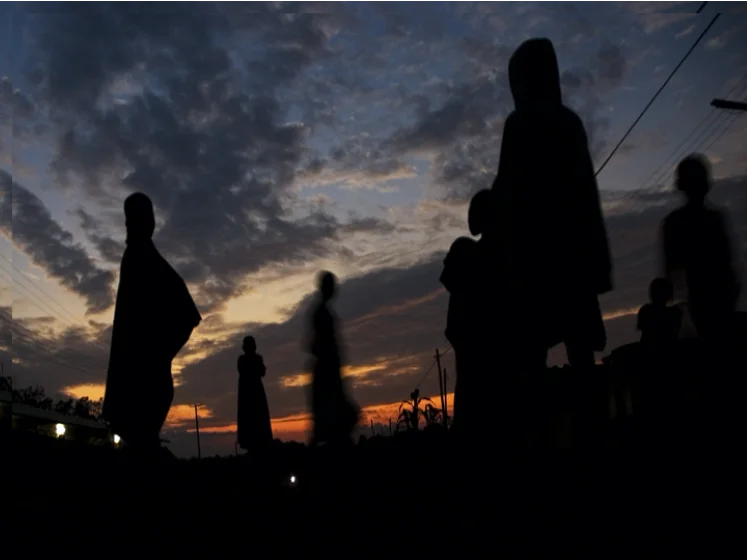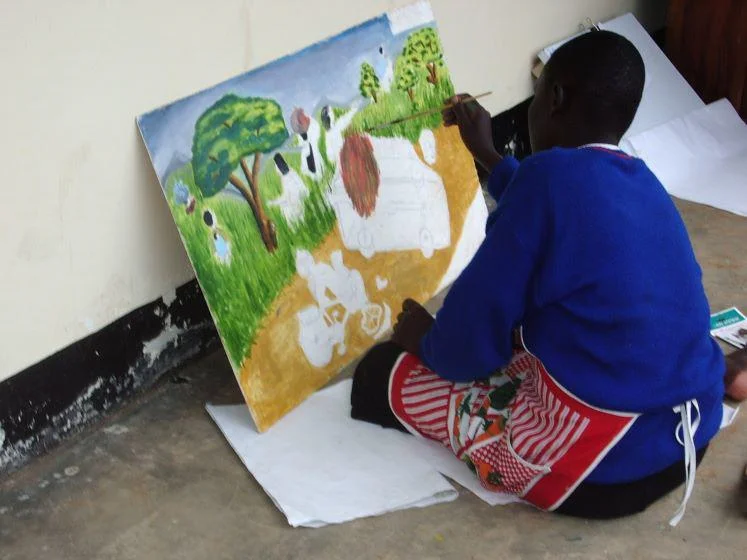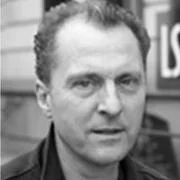The International Criminal Court and struggle for justice in Central Africa

The role of Professor Allen and Dr Porter in the Ongwen trial has been significant, their expertise enriching and influencing decision-making that has positively impacted and furthered the process of international criminal justice.
LSE research on the Lord’s Resistance Army in northern Uganda provided detailed evidence of this conflict and its context for the International Criminal Court.
What was the problem?
In 2003, Jan Egeland, then UN Under-Secretary General for Humanitarian Affairs and Emergency Relief Coordinator, described the northern Uganda situation as a "moral outrage". He was referring to the consequences of the war between the Ugandan government and the Lord’s Resistance Army (LRA), a terrorist organisation led by Joseph Kony, which had operated since the mid-1980s. The LRA had committed countless atrocities, including massacres, mutilations, and rape, and the forcible recruitment of thousands of people, with large numbers of children forced to train as fighters.
From 2004, this became the focus of the International Criminal Court’s (ICC) historic first significant case, and warrants were issued for five LRA commanders, including Dominic Ongwen. He was handed over to the ICC in 2015 and was charged with 70 counts of war crimes and crimes against humanity. A successful prosecution required both a deep understanding of the conflict and its context, and trial practices that enabled witnesses to testify safely and with confidence in the process.

What did we do?
Over many decades, Professor Tim Allen and colleagues have researched the conflict in northern Uganda, its participants and victims, international criminal justice, traditional justice, and everyday efforts for post-conflict social repair and reintegration. The work has described in detail the background to the war, analysing the atrocities of the LRA and the government’s brutal anti-insurgency operations (including the internment of over one million people in appalling conditions). Professor Allen and, more recently, Dr Holly Porter have interviewed LRA combatants and formerly abducted persons, and edited and contributed to the most authoritative, comprehensive analysis of the group available.
Following the referral of the LRA case to the International Criminal Court, Allen’s research focused on post-conflict accountability and debates about international criminal justice. Working closely with Ugandan colleagues, notably Jackeline Atingo, Allen took issue with the prevailing analysis, which criticised the court as imperialist and counter-productive to reconciliation efforts. Allen and Atingo found, instead, that many affected people were enthusiastic about criminal prosecution.
Subsequently, Allen and his team studied a wide range of themes in the region, including detailed, long-term studies of former child combatants and girls forced into sexual unions with LRA commanders, drawing attention to the inadequate support for them. Among the most striking insights is that those who spent longest with the LRA are least likely to be stigmatised and most likely to receive official aid. In contrast, a majority of returnees live in impoverished rural locations, and are commonly feared or abused by relatives and neighbours. Many were vulnerable children returned from the LRA with the support of humanitarian organisations only to have been largely abandoned.
Drawing on in-depth interviews with almost 200 women, Dr Porter’s research, undertaken during 10 years based in Uganda, provided extensive evidence and a nuanced understanding of the widespread rapes and sexual assault, and their aftermath in the Acholi context. She was able to demonstrate how what occurred with LRA forced "marriages" were transgressive in ways that outsiders had not appreciated.

This body of research by Allen and colleagues was undertaken in close collaboration with Uganda-based researchers. Through their cumulative fieldwork, embedded in northern Uganda, they have provided a critical voice to continuing debates of post-war reconstruction and, when possible, practical support to individuals in acute need.
What happened?
This research has had a significant impact on the justice and reconciliation process in post-conflict Uganda, shaping the work of the ICC. In May 2015, Allen and Porter, and their LSE colleague Dr Anna Macdonald, were invited to The Hague to brief the prosecutorial team in the case of Dominic Ongwen. Their briefings informed the prosecutorial expansion of charges to include sexual crimes and forced marriage — which were not in the original warrant. Allen subsequently acted as the prosecution’s expert witness and provided an independent pre-trial report.
In January 2017, Allen gave testimony in court, in which he described the organisational relationships within the LRA, its use of child soldiers, allocation of abducted girls to LRA commanders as "wives", and also the beliefs that informed the actions of LRA members, particularly how a spiritual inspiration came to be ascribed to its founder and leader, Joseph Kony.
An additional report was submitted to the court by Porter, drawing on her research on sexuality and violence. The content of the report is confidential, and it was a key submission in a proposal accepted by pre-trial judges to allow victims of sexual violence to provide confidential witness testimony in advance from Uganda, so they didn’t have to suffer the long ordeal of a trial and travel to the Netherlands (with the risk of hostile reactions from Ongwen supporters). Seven women were able to testify in this way that they were forced to become wives of Ongwen, and that he had raped them.
Drawing on information from the researchers, Ongwen became the first person prosecuted and convicted by an international court for multiple sexual and gender-based crimes, including the crimes of forced pregnancy and forced marriage. On 4 February 2021, Ongwen was convicted on 61 of the 70 counts of crimes against humanity and war crimes. He was sentenced to 25 years in prison.
This case set a ground-breaking international precedent, removing long-criticised legal impediments to prosecuting rape. Should this be applied more broadly, it will aid the prosecution of crimes of sexual violence in domestic and international jurisdictions. The International Criminal Law Review hailed this as:
a milestone precedent for future cases, not just in terms of circumventing situations of witness interference, but more importantly, in safeguarding vulnerable victims and witnesses, and preserving their evidence for any eventual trial.
The first 14 paragraphs of the judgement are based directly and explicitly on Allen’s testimony and present an overview of events that was regarded credible by the defence as well as the prosecution. The judgment drew on his testimony in two further aspects: firstly, in supporting the court’s decision to reject the argument that the LRA had acted in service to a credible political project; and secondly, by informing the court’s judgment that Ongwen did not act under duress.
Beyond this case, the team’s fieldwork has highlighted the plight of child returnees attempting to reintegrate, identifying widespread poverty, stigmatisation, and abuse. The research underpinned landmark policy interventions promoted by MP Lyandro Komakech, who tabled a motion, approved by Ugandan legislators in 2019, requiring the government to introduce special assistance programmes for the welfare of female former abductees and their children.
During his first visit to Uganda following the lifting of COVID-19 restrictions in March 2022, Allen was invited to brief the transitional justice adviser to Uganda’s Attorney General on research findings about victims of the LRA conflict. The information will be used to help shape how compensation and support is delivered and highlights the need to access those who were abducted by the LRA but who are not incorporated into support networks controlled by former LRA recruits who had secured a rank within the movement. These constitute the majority of people who returned from the LRA, but they have largely been ignored.
The team has also been instrumental in establishing the UK charity Trust for Child Soldiers, which in 2019/20 alone directly supported more than 300 war-affected people, particularly those who were abducted and who fought as children.
Banner image: Internal displacement camp 2004/5
